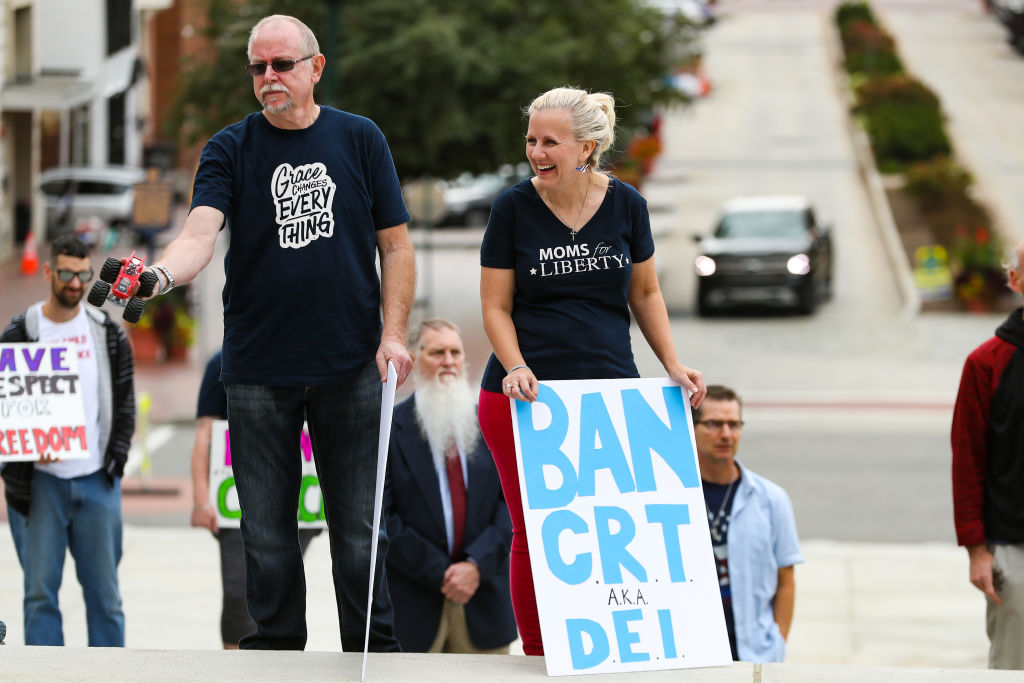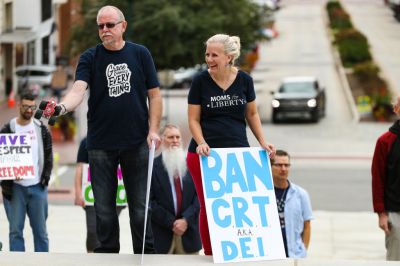“Whatever you wish that others would do to you, do also to them, for this is the Law and the Prophets,” (Matthew 7:12).
Versions of the Golden Rule abound in different cultures, religions, and civilizations. Perhaps 500 years before the Gospel of Matthew, Confucius wrote, “Never do to others what you would not like them to do to you.” In the Mahabharata, the 5th century B.C. Hindu epic, one of the gods commands, “One should never do that to another which one regards as injurious to one’s own self.”
The Golden Rule is beautifully simple. It is intuitively fair. The alternative—treating others as you would not want to be treated—is the ethic of every bully, warlord, and tyrant in history. If there is a natural law, the Golden Rule is its first statute. It’s also the strongest argument for some form of democracy and civil rights.
Democracy is the political version of the Golden Rule. I treat you as an equal citizen because I want you to treat me the same way. I recognize and protect your rights and freedoms—free speech, free worship, and more—because I want you to recognize and protect mine.
Other political systems depend on unequal, hierarchical arrangements: ruler over ruled; priest over layman; military over civilian; one race over another; one religion over another; one tribe, culture, tongue, or people over another. No such arrangement can survive the scrutiny of the Golden Rule, because no emperor wants to be treated as a subject. Democracy, conversely, is when the ruled are the rulers.
But taking the political Golden Rule seriously means accepting its full implications. When we recognize other people’s right to say, worship, or print whatever they want—when we grant them equal citizenship and liberty—they are going to do and say things that we disagree with. The Golden Rule means we agree to live in a society with other people who will make choices we find objectionable, offensive, or even hateful.
As a thought experiment, take a notoriously offensive example. In 1976, the National Socialist Party of America —the Nazi Party—sought a permit to hold a march in a Jewish suburb of Chicago. It was an act of outrageous trolling, a hideous, hateful, and bigoted use of free speech. Understandably, the town—Skokie, Illinois—erected legal barriers preventing the Nazis from marching.
We have an instinctive, gut-level revulsion to the idea of allowing Nazis to march through a Jewish neighborhood. It’s a good instinct to cultivate and nurture. When we encounter acts of blatant hate, we should be at the forefront of condemning it, explaining why it is wrong, and holding up a counterexample of grace and wisdom.
But we should pause before turning our gut-level revulsion against Nazi speech into a legal prohibition of it.
Think for a moment what would happen if we grant the government the power to censor Nazi speech. We’ve just set a precedent that the government can repress speech if enough people think it is bigoted and wrong.
You might think that’s a safe precedent to set; after all, we don’t believe anything hateful or bigoted. But the question isn’t about how we see our own beliefs. It’s about how others see them. It’s almost routine for political opponents to accuse each other of fascism. Any conservative engaged in public life has almost certainly been called a bigot or a fascist at some point in the course of our arguments.
If the government can censor actual fascists, like the American Nazi Party, sooner or later political opponents will find a way to use that power against regular conservatives, Christians, or anyone they want.
In 1976, the American Nazis sued—and won. As offensive as it sounds, their victory vindicated free association and free speech, including for grossly offensive and hateful speech.
The case is lauded as an example of just how far Americans will go to stay true to our principles. It is, in a sense, the ultimate expression of the victory of open societies over our enemies: We give them the right to associate and express themselves in our societies that they would deny us in theirs.
But more important than the victory of American ideals is the victory of the Golden Rule. I want my neighbor to have the freedom to say and believe whatever he or she wants. That is the duty I owe them under the Golden Rule.
I can’t selectively choose which neighbors to extend that freedom to: It either applies to all, or to none. Free speech that applies only to those I already agreed with, or to those who express disagreement only within allowable bounds or with a respectful tone, is not free at all.
How far should free-speech protections go?
The Supreme Court has rightly limited words that incite physical violence and words that compromise national security, which are directly tied to the government’s mandate to uphold order. If the Nazi march led to a Nazi riot, of course the police can step in.
So there are limits to speech, but not based on how hateful or wrong it is. As soon as you allow the government to decide that, all speech is hostage to the good grace and wise decisions of whichever public official gets to make the call. The framers understood the wisdom of assuming the selfishness and foolishness of our government officials.
We don’t need constitutional protections for popular speech. Popular speech will always have its defenders and it is, by virtue of being popular, not in danger of being repressed. It is precisely unpopular speech, speech deemed unacceptable in polite company, speech deemed dangerous or hateful or harmful, that needs the legal guarantees of the First Amendment.
It is also when our commitment to the political Golden Rule is most tested. It is easy to love our families and our neighbors; the test comes when we are asked to love our enemies—and Nazis are assuredly our enemies—by extending to them the same rights of speech and expression we want for ourselves.
In an increasingly pluralistic and decreasingly Christian culture, many Americans on the right face more and more instances of speech and expression that we find offensive, harmful, or even destructive. Whether it be left-leaning TV news coverage, progressive beliefs about American history reprinted in the New York Times, or annual LGTBQ parades in American cities, we are awash with speech and expression that many find wrong, repellent, or even dangerous. We may be tempted to circumscribe, regulate, or simply ban this kind of speech.
That would be a mistake. The Golden Rule tells us we should treat them the way we want to be treated, which means we should not try to ban speech and expression we disagree with. What goes around comes around; or, to put it in legal terms, what we do to them sets a precedent that they could use against us. If we violate the principles of free speech, we will deeply regret the weapon we have put in the hands of our political opponents.
Of course, the government has the responsibility to ensure public safety and public decency, which is why there are reasonable time, place, and manner regulations of protests and rallies (the Nazis had to keep their march peaceful). There also are, or should be, codes of conduct that should limit adult content in public spaces. Recognizing the right of an LGBTQ group to march, protest, or host a public event is not a blank check endorsing sexually explicit displays in public places.
We can expect, and should advocate, that the government will enforce public order and public decency—but we should also affirm and support the underlying principles of free speech and free association.
Many Americans want to see our country reflect Christian principles. It may feel counterintuitive, but one way to do that is not to police speech or try to ensure that only explicitly Christian speech is allowed, but the opposite—because equality under law is a Christian principle.
If we want to love our neighbors, embody the Golden Rule, and ensure our country reflects our Christian values, we have to grant others the same rights we expect for ourselves—including the right to live wrong.







Please note that we at The Dispatch hold ourselves, our work, and our commenters to a higher standard than other places on the internet. We welcome comments that foster genuine debate or discussion—including comments critical of us or our work—but responses that include ad hominem attacks on fellow Dispatch members or are intended to stoke fear and anger may be moderated.
With your membership, you only have the ability to comment on The Morning Dispatch articles. Consider upgrading to join the conversation everywhere.